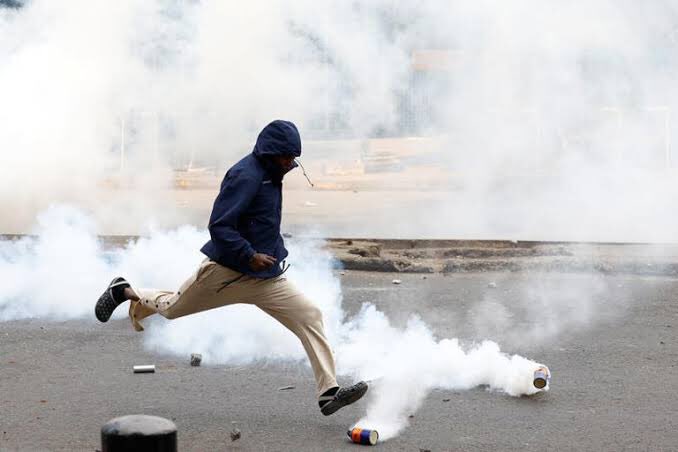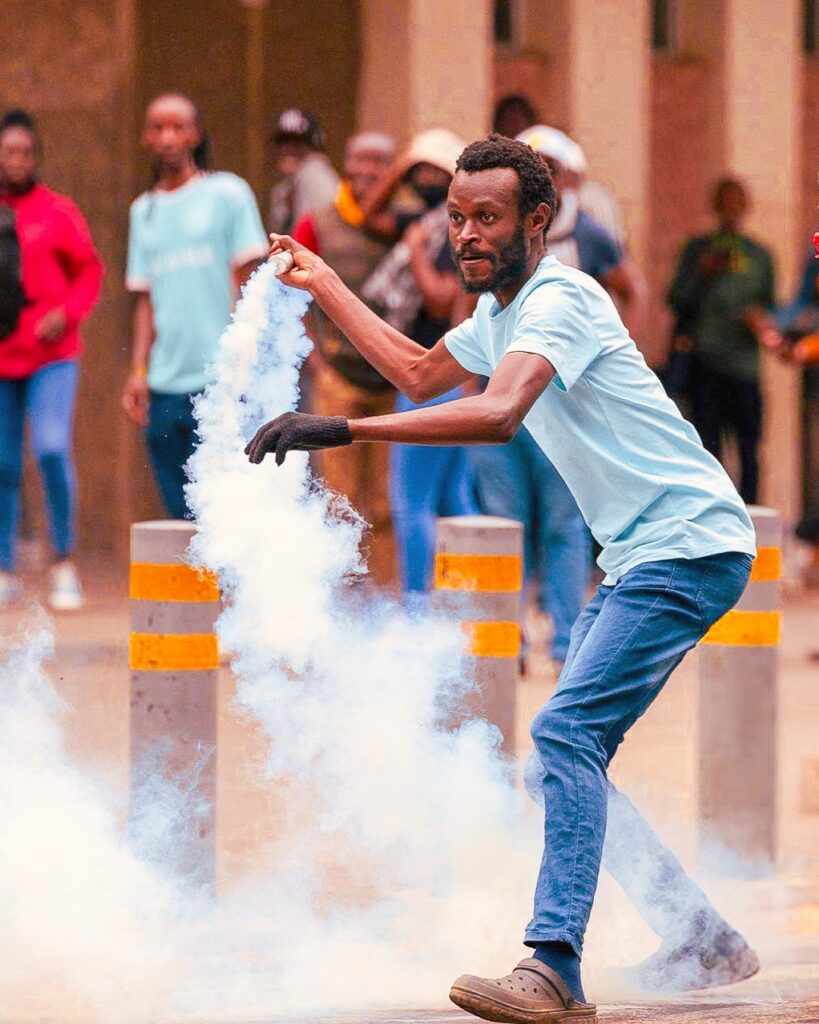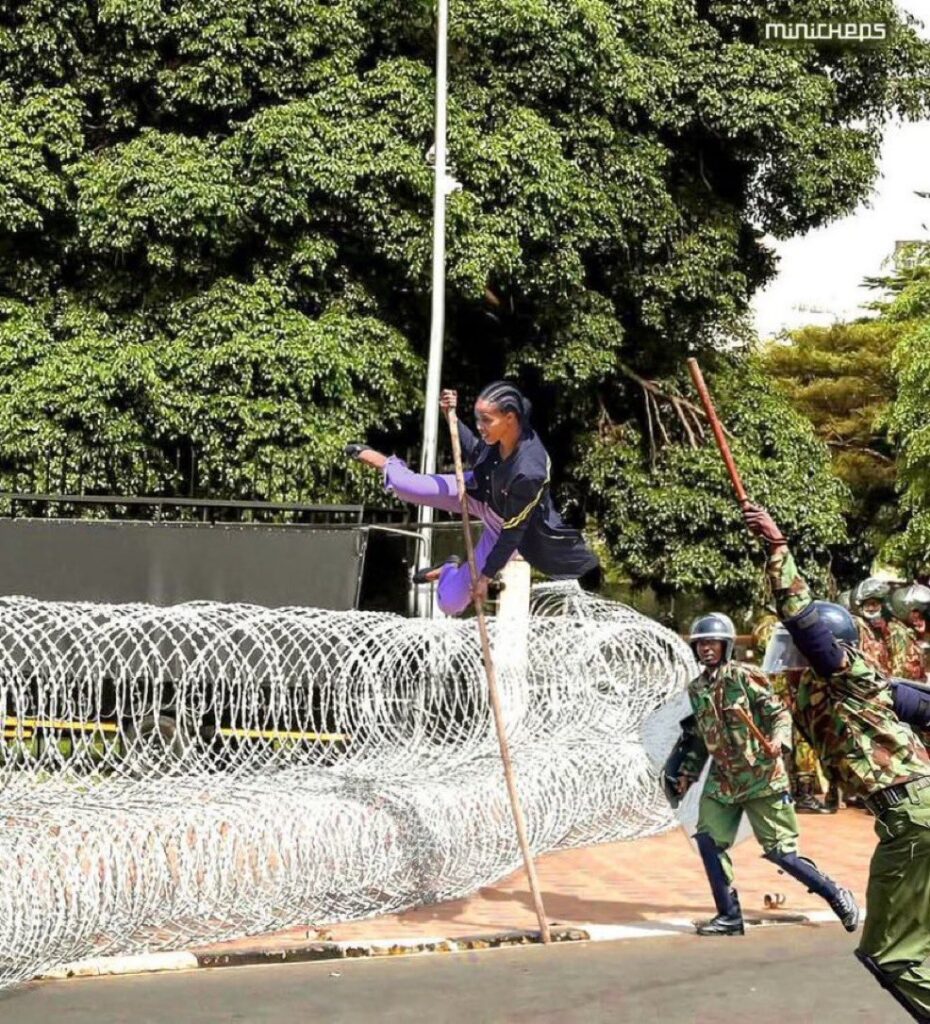Anniversary celebrations generally serve to commemorate significant events or relationships on an annual basis. Last week, the Kenyan youths did exactly that when they marked a not-so-great first year milestone in their rocky relationship with their Head of State. Feel free to take that quite literally, cos the number of stones that were pelted on Kenyatta Avenue alone could set a solid foundation for a mega sports stadium.
Speaking of which, as the world gears up for the 2026 Olympic games, Kenya, renowned for its dominance in long-distance running, has decided to spice things up with two groundbreaking events: Teargas Dash and Razor Wire Vault. Inspired by the spirited and chaotic scenes captured in recent days, it’s hard to say none of us saw this coming, cos the exceptional display of athleticism on the streets of Nairobi was unprecedented.

In light of this, the National Olympic Committee of Kenya (NOC-K) has kicked off a drive to enroll vibrant and youthful athletes in the podium-worthy skills of dodging teargas canisters and leaping over barbed wire, a spectacle that is set to bring a unique flavor onto the global stage. “The aim is to not only accommodate fresh talent, but also broaden our cache of Olympic medals,” said Paul Tergat, the NOC-K chairman.
The first event, Teargas Dash, draws from the adrenaline-charged sprints, where the athlete sidesteps a smoking canister with the agility of a gazelle. Think of it as dodge-ball, but with the athlete running and there’s a canister instead of a ball. Officials at the International Olympic Committee (IOC) have already begun drafting rules: competitors must navigate an 800-meter course—which’s about the stretch of Kenyatta Avenue—blanketed in smoke. The goal is to cross the finish line sober, with no trace of brains oozing out of your nostrils. With the great wealth of experience amassed over the years, the Kenyan coaches are optimistic about the country’s prospects. “The average Kenyan has got the lung capacity of a Nile Perch!” bragged one coach.

Kipkorir, a young fella that had just enrolled at a training camp, couldn’t hold back his excitement: “This is a dream come true for me. I’ve always wanted to do this,” he said with tears cascading down his face. By the end of our interaction, I still hadn’t established whether his were tears of joy or tears of gas!
While critics argue that the event would be too easy for Kenya and that they would certainly dominate from the get-go, given their long-standing tradition of protests—sometimes protesting as though it were a rite of passage to patriotism—Kenya’s Minister of Sports shot back saying “that’s not our problem!”.
The Razor Wire Vault combines pole vaulting with a touch of survival instinct. Athletes are required to successfully clear 8-foot-tall razor wire obstacles using a wooden pole, while evading a rifle-wielding antagonist. Whereas the Teargas Dash is particular on physical requirements for enrollment, Razor Wire Vault cuts across. Yeah, you bet that damn razor wire will cut right across your flesh!

Even now masters of high-altitude training, the Kenyan athletes see this development as part of the natural evolution of the Kenyan species. “In those nine months of gestation before we were born, most of us were already jumping,” boasted one Masai razor wire vaulter. “My mother conceived me while jumping,” said another with a smug.
The IOC is reportedly intrigued, albeit with some reservations. “We’re all for innovation,” said the IOC spokesperson, “but no weapon formed shall prosper!”, he added, highlighting the IOC’s no-weapons policy.
Whereas public reaction in Kenya is mixed, many Gen-Zs hail the new events as a celebration of resilience, turning street survival into a sport, with the assurance of gold from the Kenyan Olympic team. Either way, one thing is clear: Kenya’s athletes are ready to run, jump, and dodge their way into Olympic history as their Ugandan counterparts look on with jealousy.
Related Story: Kenya's Floods: Climate Change or Divine Judgement?
Join the conversation on X: